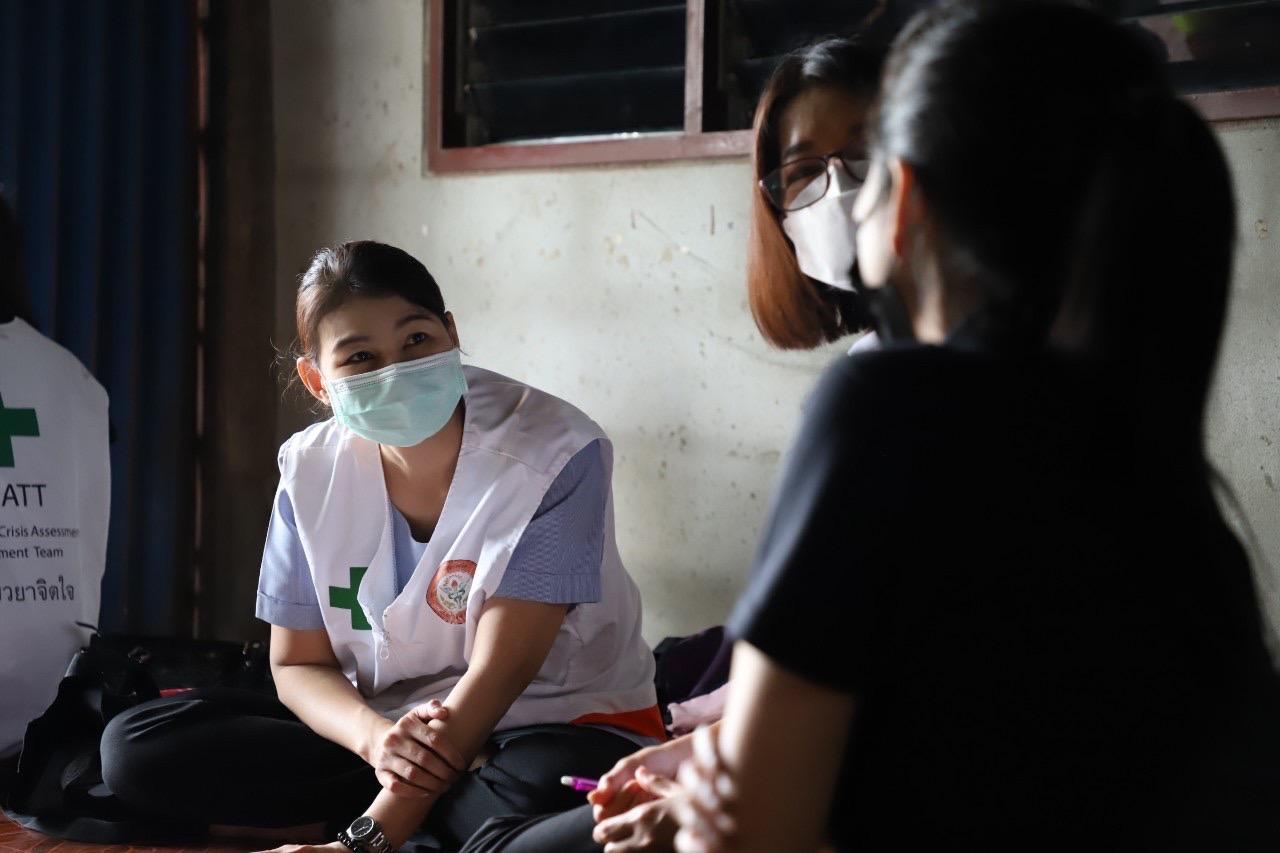
As soon as Loei Ratchanakharin Psychiatric Hospital announced it was recruiting volunteers to help survivors and those who lost loved ones in the massacre in Nong Bua Lam Phu province, Pensuda Chaimueang, a 51-year-old nurse, did not hesitate to join.
She wanted to help them with their suffering and show they are not alone amid the grief.
She and her friends arrived at the daycare centre under Uthai Sawan Tambon Administrative Organisation in Na Klang district on the same day as the tragedy.
Help is needed immediately among the highest-risk group such as parents, relatives and witnesses. They needed someone to stay with them, said Ms Pensuda.
She was assigned to take care of a grandpa who lost his nephew, aged three, whom he had raised since birth.
She found the grandpa was in stress and talking about suicide. He expressed his anger when talking about the killer through his eyes and voice and his hands were gripped tightly. The volunteer consoled him by helping him not focus on the loss.
"We do not come to make any suggestions about do's and don'ts. What we do is listen and build up their mindset that they are not alone. Everybody is willing to lend support for help them move on. The royally sponsored cremation was a significant encouragement to the victims that their loss is felt by all," she said.
Regarding the grandpa's case, she said a mental assessment found he needs further help. His case had been forwarded to the hospital.
Staying at the village for five days, she observed people showed signs of improvement. Some people can accept what happened and are ready to carry on with their life.
However, there are severe cases in which the team provides close support to prevent any acts of self-harm. She estimated that around 20% of the victims are severe cases.
The Department of Mental Health assigned Loei Ratchanakharin Psychiatric Hospital as the lead unit to heal victims of the Nong Bua Lam Phu carnage that killed 36 victims including 24 children.
At least 30 volunteers from hospitals in nearby provinces such as Loei, Nong Khai, Udon Thani, Ubon Ratchathani, and Khon Kaen joined the team, which consists of psychiatrists, nurses, pharmacists and social workers, local officers and village health volunteers.
Dr Julapan Hemmakul, Loei Ratchanakharin Psychiatric Hospital director who is in charge of the mental aid team, said the team found at least 340 people are directly affected by the case.
Right after the tragedy, the department sent the Mental Health Crisis Assessment and Treatment Team (MCATT) to provide psychological first aid to the victims.
She said the team has stayed with each family for days. They will also identify severe cases that need to come under the mental healthcare system.
At the same time, she added the team is now preparing the community for a return to normalcy as fast as possible although some people, especially children, are still in fear.
"The locals cooperate well with our team. They have opened their minds to rehabilitation. We believe it might take at least a year to reach for things to get back to normal," she said.
She added the Nong Bua Lam Phu massacre is similar to the Deep South violence in that some people's mental health has been undermined and they need rehabilitation.
Meanwhile, Dr Woroj Chotipitayasunon, the Department of Mental Health spokesman, said the department encourages family members to care for vulnerable people in their family, especially those who show aggressive behaviour.
He was talking about the triggers which may lead people to embark on mass crime sprees such as the killings at the childcare centre.
He said early treatment is important to stop aggression. ''Any ignorance from a family can lead to more harm. The family and community should not hesitate to work together to deal with the problem in the early stages,'' he said.